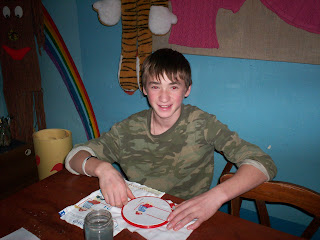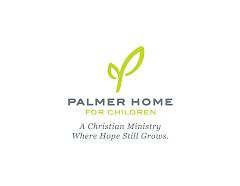
Please...



What God expects from his people regarding orphans.
Job 1: 1 There was a man in the land of Uz whose name was Job, and that man was blameless and upright, one who feared God and turned away from evil.
Job 1:8 And the Lord said to Satan, “Have you considered my servant Job, that there is none like him on the earth, a blameless and upright man, who fears God and turns away from evil?”
Job 31:16-23 “If I have withheld anything that the poor desired, or have caused the eyes of the widow to fail, or have eaten my morsel alone, and the fatherless has not eaten of it (for from my youth the fatherless grew up with me as with a father, and from my mother's womb I guided the widow), if I have seen anyone perish for lack of clothing, or the needy without covering, if his body has not blessed me, and if he was not warmed with the fleece of my sheep, if I have raised my hand against the fatherless, because I saw my help in the gate, then let my shoulder blade fall from my shoulder, and let my arm be broken from its socket. For I was in terror of calamity from God, and I could not have faced his majesty.”
Study notes on the above section of Scripture from the ESV Study Bible read:
“Care for the poor, widow (v. 16), fatherless (v. 17), needy (v. 19), and sojourner (see vv. 31–32) is prescribed in the Pentateuch (see Ex. 22:21–27; Lev. 19:33; Deut. 24:17–18). Such action shows that someone understands that he or she lives with others before God and is called to fear him alone (Job 31:23). Job lived this way because he believed God weighed his actions, and he understood that calamity was the consequence for the unrighteous (see vv. 2–4).”
Job, a man considered by God to be blameless and upright, cared for orphans. He fed them, clothed them and was as a father to them.
The Commands and Warnings of God to His People
Exodus 22:22-24 You shall not mistreat any widow or fatherless child. If you do mistreat them, and they cry out to me, I will surely hear their cry, and my wrath will burn, and I will kill you with the sword, and your wives shall become widows and your children fatherless.
Study notes on the above section of Scripture from the ESV Study Bible read:
Ex. 22:22 Through his prophets, the Lord will repeatedly denounce the mistreatment of the widow and the fatherless child in Israel and Judah (e.g., Isa. 1:17, 23; Jer. 5:28; 7:5–7; 22:3; Zech. 7:10).
Deuteronomy 24:17-22 “You shall not pervert the justice due to the sojourner or to the fatherless, or take a widow's garment in pledge, but you shall remember that you were a slave in Egypt and the Lord your God redeemed you from there; therefore I command you to do this.
“When you reap your harvest in your field and forget a sheaf in the field, you shall not go back to get it. It shall be for the sojourner, the fatherless, and the widow, that the Lord your God may bless you in all the work of your hands. When you beat your olive trees, you shall not go over them again. It shall be for the sojourner, the fatherless, and the widow. When you gather the grapes of your vineyard, you shall not strip it afterward. It shall be for the sojourner, the fatherless, and the widow. You shall remember that you were a slave in the land of Egypt; therefore I command you to do this.”
Study notes on the above section of Scripture from the ESV Study Bible read:
Deut. 24:17–18 sojourner . . . fatherless . . . widow's garment. These three groups, as landless people, represented the most vulnerable in the land (see 10:18–19 and note). Israel's own time spent in Egypt as slaves was to motivate their proper treatment of landless people. See also v. 22.
When God brought his people out of slavery and gave them a land of their own, he commanded them to care for the orphan and gave them warnings if they did not care for the orphan. When God pronounces judgment on his people, some of the reasons for judgment are because, [Jeremiah 5:28] “…they judge not with justice the cause of the fatherless, to make it prosper, and they do not defend the cause of the needy” and, Ezekial 22:7 lists as one of Israel’s abominations, “…the fatherless and widow are wronged in you.”
James 1:27
James 1:27 Religion that is pure and undefiled before God, the Father, is this: to visit orphans and widows in their affliction, and to keep oneself unstained from the world.
Study notes on the above section of Scripture from the ESV Study Bible read:
James 1:26–27 True, Practical Religion. This section on obedience (vv. 19–27) concludes with three characteristics of the one whose religion is pure and undefiled, that is, one who “does” the word. First, he refuses self-deception and bridles his tongue, which means he keeps a tight rein on his speech like a bridle controlling a horse. Second, he shows mercy and love to the oppressed. Orphans and widows were frequent OT examples of this (see Deut. 10:18; Isa. 1:17; Jer. 7:5–7) because of their particularly helpless state (on widows in NT times, see note on 1 Tim. 5:3–16). Third, he remains unstained from the world; James uses the sacrificial language of “the lamb without blemish” (Ex. 12:5; 1 Pet. 1:19) to describe the pure religious person.
The notes in the Reformation Study Bible state that “James stresses concern for widows and orphans as a true measure of obedience that is pleasing to God. It reflects the concerns of God Himself. Israel was given this responsibility in the Old Testament.”
The example given to us by Job, a man God calls blameless and upright, the commands and warnings God gives his people and James 1:27 all point to the fact that God calls his people to care for those in need: in particular, orphans and widows.















Thank you for this.
ReplyDeleteI've posted this on our site as well. Hope you guys are well and thanks for all of the help. You have been so helpful!
ReplyDeleteI knew it!
ReplyDeleteVery excited and not surprised in the least. I love the extending of CMS - good work to be done. Looking forward to hearing more.
Love you all!